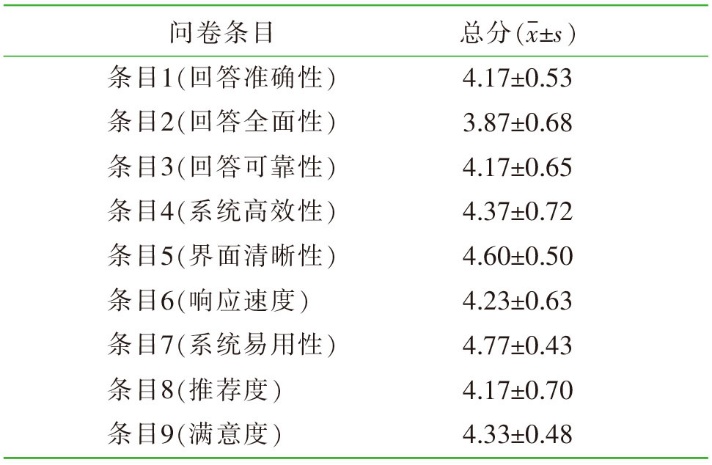| [1] |
Reid L, Maeder A, Button D, et al. Defining nursing informatics:a narrative review[J]. Stud Health Technol Inform, 2021,284:108-112.
|
| [2] |
American Association of Colleges of Nursing. The essentials:core competencies for professional nursing education[EB/OL]. (2024-12-05). https://nursing.utah.edu/blog/2024/12/essentials-core-competencies-professional-nursing-education.
|
| [3] |
Booth R, Strudwick G, McMurray J, et al. The future of nursing informatics in a digitally-enabled world[M]. Cham: Springer International Publishing,2021:395-417.
|
| [4] |
王峥, 周滢, 王怡丹, 等. 美国护理工程学与护理信息学研究生培养机制及特征分析[J]. 中华护理教育, 2022, 19(5):414-420.
|
|
Wang Z, Zhou Y, Wang YD, et al. The training system and characteristics of graduate education in nursing engineering and nursing informatics in the United States[J]. Chin J Nurs Educ, 2022, 19(5):414-420.
|
| [5] |
Topaz M, Pruinelli L. Big data and nursing:implications for the future[J]. Stud Health Technol Inform, 2017,232:165-171.
|
| [6] |
Harerimana A, Wicking K, Biedermann N, et al. Integrating nursing informatics into undergraduate nursing education in Africa:a scoping review[J]. Int Nurs Rev, 2021, 68(3):420-433.
|
| [7] |
Schedlbauer J, Raptis G, Ludwig B. Medical informatics labor market analysis using web crawling,web scraping,and text mining[J]. Int J Med Inform, 2021,150:104453.
|
| [8] |
贾鹏. 基于大语言模型的农业知识问答系统的研究与设计[D]. 秦皇岛: 河北科技师范学院, 2024.
|
|
Jia P. Research and design of agricultural knowledge question answering system based on macrolanguage model[D]. Qinhuangdao: Hebei Normal University of Science & Technology, 2024.
|
| [9] |
Goodman RS, Randall Patrinely J, Stone CA Jr, et al. Accuracy and reliability of chatbot responses to physician questions[J]. JAMA Netw Open, 2023, 6(10):e2336483.
|
| [10] |
Silva P. Davis’ Technology Acceptance Model(TAM)(1989)[M]. Information Seeking Behavior and Technology Adoption. Hershey: IGI Global Scientific Publishing,2015:205-219.
|
| [11] |
刘明. Colaizzi七个步骤在现象学研究资料分析中的应用[J]. 护理学杂志, 2019, 34(11):90-92.
|
| [12] |
刘经邦, 夏叶茹, 王莉, 等. 生成式人工智能在ICU初级模拟师资案例设计培训中的应用研究[J]. 中华护理教育, 2025, 22(3):272-278.
|
|
Liu JB, Xia YR, Wang L, et al. Study on the effects of generative artificial intelligence in ICU novice simulation instructor case design training[J]. Chin J Nurs Educ, 2025, 22(3):272-278.
|
| [13] |
王雅琦, 高洁, 王克芳. 生成式人工智能在护理模拟教学中的潜在应用价值、挑战和展望[J]. 中华护理教育, 2024, 21(9):1076-1081.
|
|
Wang YQ, Gao J, Wang KF. Potential application value,challenges,and prospects of generative artificial intelligence in nursing simulation education[J]. Chin J Nurs Educ, 2024, 21(9):1076-1081.
|
| [14] |
Makhlouf E, Alenezi A, Shokr EA. Effectiveness of designing a knowledge-based artificial intelligence chatbot system into a nursing training program:a quasi-experimental design[J]. Nurse Educ Today, 2024,137:106159.
|
| [15] |
Walter Y. Embracing the future of artificial intelligence in the classroom:the relevance of AI literacy,prompt engineering,and critical thinking in modern education[J]. Int J Educ Technol High Educ, 2024, 21(1):15.
|
| [16] |
曹婧, 杨磊, 李小妹. 人工智能赋能护理教育的实践路径与展望[J]. 中华护理教育, 2025, 22(4):389-392.
|
|
Cao J, Yang L, Li XM. Practical pathways and future prospects of AI-powered nursing education[J]. Chin J Nurs Educ, 2025, 22(4):389-392.
|







